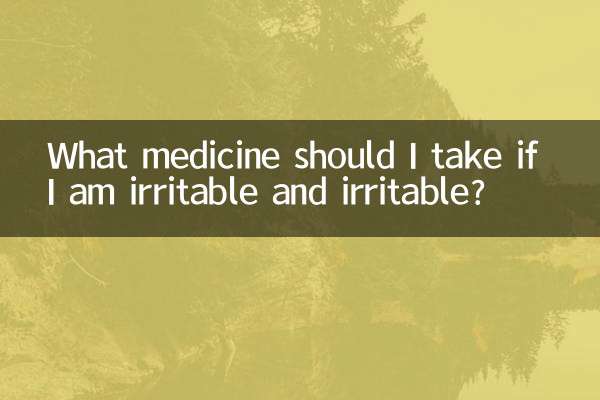What should you avoid taking with anti-tuberculosis drugs?
Tuberculosis is a chronic infectious disease caused by Mycobacterium tuberculosis, which requires long-term use of anti-tuberculosis drugs during treatment. However, certain foods or drinks may interact with medications, affecting their effectiveness or increasing side effects. This article will combine the hot topics and hot content on the Internet in the past 10 days to sort out the foods and precautions that should be avoided with anti-tuberculosis drugs.
1. Interaction between anti-tuberculosis drugs and food

Anti-tuberculosis drugs mainly include isoniazid, rifampin, pyrazinamide, ethambutol, etc. The following are contraindications for these drugs and foods:
| Drug name | avoid food | reason |
|---|---|---|
| Isoniazid | Foods rich in tyramine (such as cheese, kippers, beer) | May cause adverse reactions such as increased blood pressure and headaches |
| rifampicin | Alcohol, high-fat foods | Alcohol increases the burden on the liver, and high-fat foods affect drug absorption. |
| pyrazinamide | High purine foods (such as animal offal, seafood) | May aggravate elevated uric acid and induce gout |
| ethambutol | Dairy products, antacids containing aluminum or magnesium | Affect drug absorption and reduce efficacy |
2. Dietary recommendations during anti-tuberculosis treatment
1.avoid alcohol: Alcohol will increase the burden on the liver, especially when combined with rifampicin and isoniazid, which may increase the risk of liver damage.
2.Control high-fat foods: High-fat diet may affect the absorption of rifampicin. It is recommended to maintain a light diet while taking the medicine.
3.Appropriate amount of vitamin B6 supplement: Isoniazid may cause vitamin B6 deficiency and can be supplemented appropriately, but doctor’s advice is required.
4.Balanced nutrition: Tuberculosis consumes a lot of money, and patients should ensure adequate intake of protein, vitamins and minerals to support the immune system.
3. The relationship between recent hot topics and anti-tuberculosis drugs
1.Alcohol and Drug Interactions: There has been a lot of discussion on social media recently about "drinking after taking medicine". Experts warn that taking anti-tuberculosis drugs and alcohol together may cause serious adverse reactions.
2.Gout and antituberculosis treatment: Pyrazinamide may cause an increase in uric acid, which is related to the recently hotly discussed topic of "high uric acid diet". Patients should pay attention to avoid high purine foods.
3.Drug-Dairy Conflicts: Taking ethambutol with dairy products may affect the efficacy of the drug, which echoes the recent popular science content on "whether milk is suitable to be taken with drugs."
4. Summary
Anti-tuberculosis treatment is a long-term process, and patients must strictly abide by the doctor's instructions and avoid foods that conflict with the medicine. At the same time, maintaining good living habits and a balanced diet will help improve the treatment effect. If you have any questions about the dietary contraindications for anti-tuberculosis drugs, it is recommended to consult your doctor or pharmacist promptly.
Through the above content, I hope it can help you better understand the dietary taboos of anti-tuberculosis drugs and ensure the smooth progress of treatment. Recent hot topics also remind us that the interaction between drugs and food cannot be ignored, and only by using scientific drugs can we recover faster.

check the details

check the details